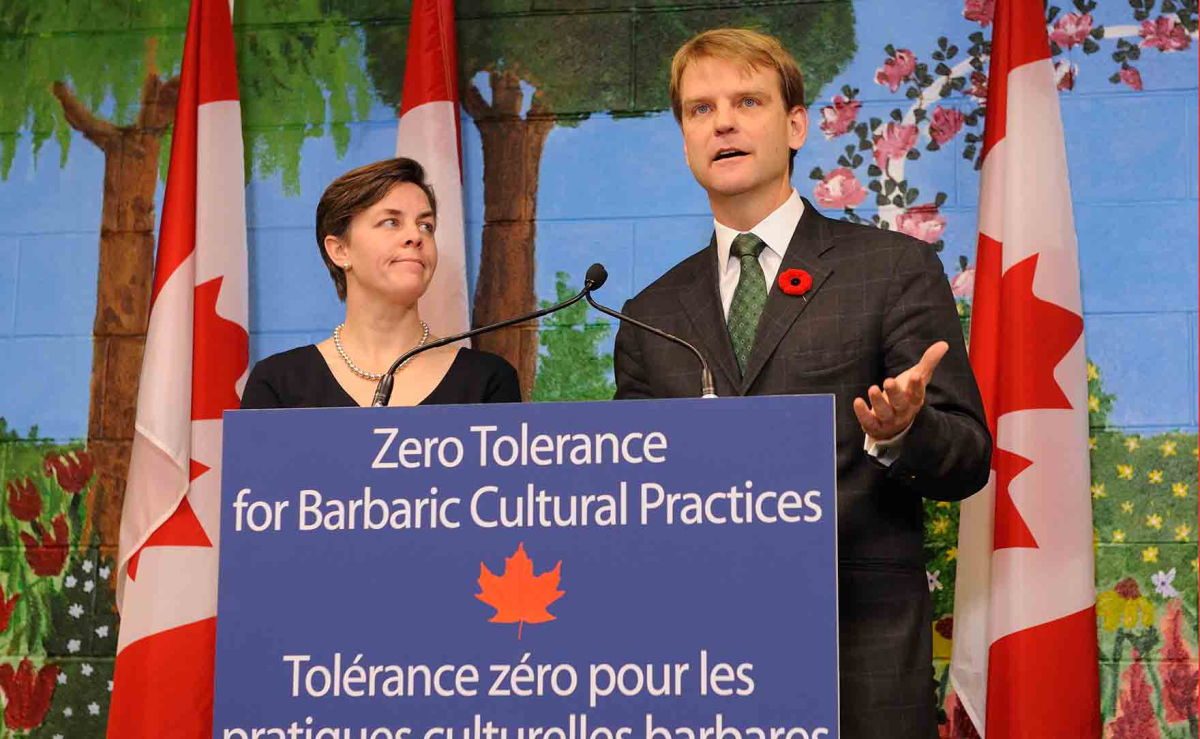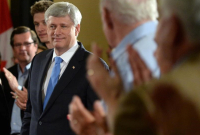Canadian academics from every discipline banded together to condemn the "hate-mongering" that has taken place in the current election campaign.
The 587 professors from across the country issued an open letter in which they said: "In democratic electoral politics there is an ethical line that distinguishes spirited partisan strategy from cynical tactics that betray the values of mutual respect and toleration that lie at the heart of civil democratic discourse."
The letter went on in part to say, "However, by injecting the inflammatory rhetoric of ‘barbaric cultural practices’ into the current campaign, the Conservative Party has flagrantly crossed the line. The repeated use of this phrase along with a proposed tip line to root out undesirables are cynically calculated to distract and divide citizens by insinuating that some law abiding and peaceful members of the community are freedom-hating barbarians who threaten Canadian society."
Many of Canada's most distinguished academics signed the letter.
Full text below:
Open letter regarding Conservative Party campaign tactics
We are a diverse group of academics with different political views and different political allegiances. We are united by a common interest in the integrity of democratic processes and a concern about the ugly and dangerous turn we have recently witnessed in the election campaign. In democratic electoral politics there is an ethical line that distinguishes spirited partisan strategy from cynical tactics that betray the values of mutual respect and toleration that lie at the heart of civil democratic discourse.
Honourable politicians do not cross that line even when they think doing so will be politically advantageous. Disreputable politicians ignore the line when they find it convenient to do so.
The Conservative Party under Stephen Harper has already come perilously close to this line by suggesting that religion is an appropriate basis to select refugees and by fanning fears of terrorism as a pretext for revoking citizenship from some Canadians. Distinguishing ‘old-stock’ Canadians from new ones was also divisive and problematic. Increasingly, the Conservatives seem to have been opting for a particularly nasty form of “wedge politics”.
However, by injecting the inflammatory rhetoric of ‘barbaric cultural practices’ into the current campaign, the Conservative Party has flagrantly crossed the line. The repeated use of this phrase along with a proposed tip line to root out undesirables are cynically calculated to distract and divide citizens by insinuating that some law abiding and peaceful members of the community are freedom-hating barbarians who threaten Canadian society.
The Conservatives know that Canada faces no such threat and that the vast majority of citizens, irrespective of their religious commitments or cultural backgrounds, embrace the basic rights and liberties upon which our democracy is based. By conjuring up a phantom menace to the country and implying that some immigrants and religious minorities are enemies, the Conservatives hope to pit Canadians against one another. Like many sophisticated forms of vicious propaganda, the invocation of barbarism is meant to create fear and anxiety rather than to identify a real problem.
We enjoy the rule of law in Canada and it requires the equal application of the law. Those who break the law should be treated within a common system of criminal justice. A special mechanism that targets some minorities for extra scrutiny is as unnecessary as it is odious. The devious strategists who have devised this campaign know that their objectives are not well served by employing racist or anti-religious epithets, so they ask us to imagine unspecified but supposedly real barbarians. So we are encouraged to demonize those who are different from ourselves and whose religious or cultural practices we do not share or understand. In the present context, this is hate mongering, and it has no place in Canadian democracy.
We do not deny that there is room to discuss and debate how contemporary democracies should respond to religious, cultural and linguistic pluralism. Indeed, Canadian legal and political theory is at the forefront of exploring such matters. But a common point of departure for these debates and discussions is a commitment to civility, decency and toleration. Toleration does not require that one like or endorse the cultural or religious practices of others, but it does require that we refrain from insulting the dignity of those with whom we disagree. The Conservatives have shown contempt for a politics of mutual respect. We condemn the unethical Conservative strategy that brings shame to Canadian politics. We hope that Canadians will join us in repudiating the politics of hate. Instead let us embrace a nobler vision of civil discourse that is truly oriented to achieving the common good for all Canadians.




Comments